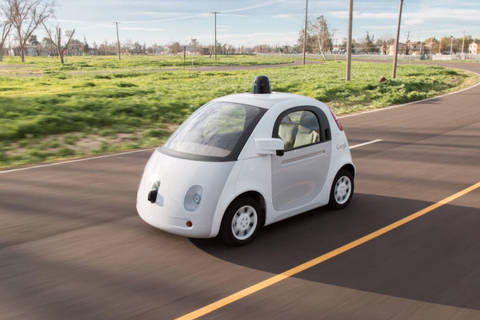Google announced on May 15, Friday, that this summer it will conduct road tests for its bubble-shaped fully self-driving cars. Several prototype versions of the autonomous cars are set to hit Silicon Valley streets in California.
In a blog post, the company said that the Google bubble car tests will put the tech giant one step closer to an autonomous car for consumers. It has already logged about one million miles (1.6 million km) for its fleet of self-driving Lexus SUVs.
Industry experts project that commercial driverless cars will hit the roads by 2020. In fact, automakers of traditional cars are already testing their own prototypes of unmanned cars.
The main self-driving car technology issue is software, rather than hardware. Companies such as Google are developing ways to process the data captured by cameras, radars, and lasers.
Ironically, the new electric vehicles need a car CPU that can react to human-like behavior. That includes random actions by walkers, bicyclists, and human drivers.
Another issue is that self-driving cars must also understand and recognize the driving styles used in different United States regions. This is related to the "driving culture" in those areas of the country.
These challenges highlight the importance of the upcoming road tests of the Google bubble car. The urban setting of Silicon Valley gives the company an opportunity to perfect its "predictive technologies," according to New York Times.
The new Google car model has some key features lacking on the Lexus prototypes. Google's new self-driving cars are fully autonomous, but include a steering wheel and pedals so a driver could take over control.
These components are a reminder that even a "safety driver" can make errors. Earlier this week Google announced that none of the company's 11 "minor accidents" involving its self-driving vehicles were caused by the smart cars.
Tesla Motors will launch an "autopilot" feature this year that will allow Model S driverless cars to operate on highways, according to Huffington Post. Meanwhile, next year General Motors' "Super Cruise" will provide fully autonomous highway driving.
Electric car companies are also experimenting with car-parking technology. The French company Valeo is developing new technology that allows autonomous cars to park and un-park without drivers' control.



























